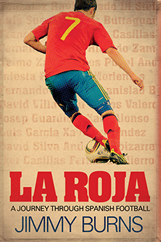REVIEW IN THIS WEEK’S THE TABLET BOOKS
Books > The centre cannot hold
THE CENTRE CANNOT HOLD
05 October 2017 | by Jimmy Burns
The centre cannot hold
The Struggle for Catalonia: Rebel Politics in Spain
Raphael Minder
(Hurst, 344 PP, £15.99)
Tablet Bookshop price £14.40 • Tel 01420 592974
Few local festival rituals in Catalonia are as popular as the castell, the human tower. A large group of male and female volunteers – from a minimum of 60 to maximum of 600 – link arms to create the pinya or base; others clamber on to their shoulders, creating diminishing layers, until only children can climb on top; once one child has reached the apex, he or she steadies himself or herself upright, and raises a hand, steady and defiant, a signal that the castell is complete – before it is carefully dismantled to avoid anyone falling. As Raphael Minder notes in his incisive, highly readable and timely account of Catalan political culture, the castell took an increasingly symbolic significance in the weeks leading up to last weekend’s referendum, with a growing number of Catalans believing their grass-roots separatist movement could draw on the values of the castells – “força, equilibri, valor i seny” (strength, balance, courage and common sense) – to create an independent state.
Minder, a Swiss-born former Financial Times correspondent who now covers Spain for The New York Times, brings years of objective reporting to inform a thoughtful, balanced analysis of an extraordinarily complex issue. He draws on scrupulously non-partisan historical research and hundreds of interviews across the political and social spectrum to leave the reader in no doubt of the dangerously widening gulf between the ruling centre-right Government in Madrid and the radicalised Catalan nationalists.
Writing before the dramatic events of 1 October, Minder concludes that while the creation of an independent Catalan state may not be a pipe dream, neither is it inevitable, “particularly since Catalan society has often shown itself be more inclined towards pragmatism rather than hothead idealism”. 11 September 1714, celebrated by millions of Catalans as their national day, marked a crushing defeat rather than a successful revolution. Troops in Barcelona under the control of the Archduke Charles of Austria fell to the besieging army of Philip V, the first Bourbon king of Spain. Yet the importance of 1714 resides as much in the 14 months Barcelona held out under siege, as in the repression that followed under the Bourbon monarch, ancestor to the current king of Spain. As Minder points out, heroic resistance is as much part of the Catalan mystique as suffering and endurance.
Politics in Catalonia in recent decades had been on a far less extreme level than in the Basque country, where more than 800 people were killed in the separatist campaign waged by Eta which only finally ended in 2011. By contrast, an incipient violent Catalan separatist group underpinned by a Marxist-Leninist ideology called Terra Lliure failed to generate popular support. Since its campaign petered out in the early 1990s, Catalan nationalism has expressed itself in peaceful civic protest, an increasingly restless elected majority in the regional government and the growing politicisation of such assertions of cultural identity as the castells and support for FC Barcelona. Local politics draws on a mythologised history, from the popular movements that flourished in the fifteenth century to the worker militias memorably evoked by George Orwell in Homage to Catalonia. The scars of the Spanish Civil War in a region that was the last to surrender to Franco – despite the support he enjoyed among many Catalans, not least Catholics – remain deep.
Minder shows how the post-Franco settlement allowing the Catalans limited autonomy gradually fell apart, with the king and the Catholic Church declining in influence and separatists and hard-line centrist politicians in Madrid mirroring each other in their inability to dialogue and make concessions. The mounting confrontation was fuelled by the inability of a majority of Spaniards to agree on how much control over its affairs should be devolved to its economically strongest region. Minder quotes with approval the Spanish philosopher José Ortega y Gasset, who in 1932 argued that Catalonia “is a problem that cannot be resolved, but can only be steered”.
As Minder illustrates, Catalonia has shown itself capable of peaceable accommodation with the rest of Spain at the same time as proudly preserving its individual language and culture, not least the one-off wonder of Gaudi’s Sagrada Familia and the enduring religious iconography of Montserrat. The 1992 Olympics in Barcelona are still remembered as the best-organised and most popular in the history of the Games, and the iconic photograph taken at the time of Catalan nationalist and Spanish politicians in a rowing boat together represented a high point of democratic solidarity in the post-Franco years. Since then, there have been several shipwrecks, not least the the Spanish Government’s use of the courts and the paramilitary Civil Guard to try to prevent the referendum vote taking place, which has stirred emotional memories of past repression.
A crisis that could have cataclysmic consequences not just for Spain but for Europe has been allowed to fester because of insufficient political will over several years to defuse tensions, and a failure to seek compromise and the common good. Minder is unsure whether the fragile castell of Catalan rebel politics will disintegrate in tears. This is a cautionary tale about the consequences of bloody-mindedness and intolerance that should be required reading for anyone interested in the future not only of Spain, but of Europe.

